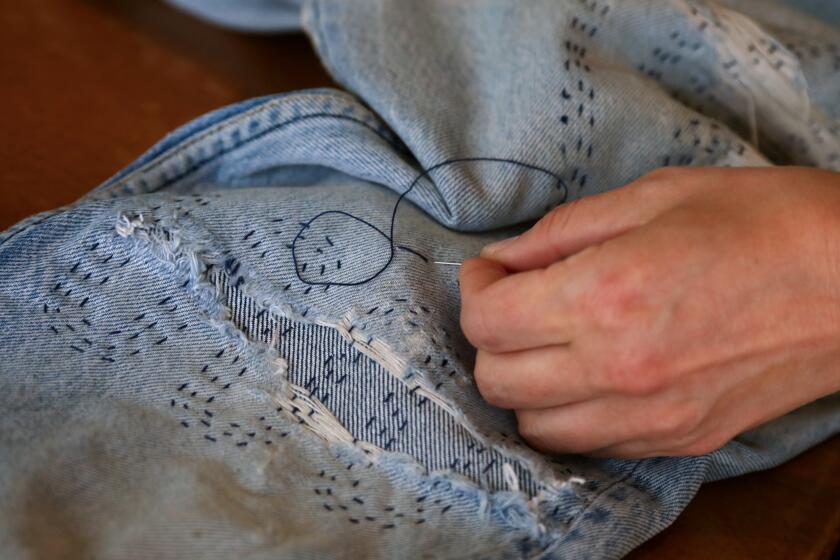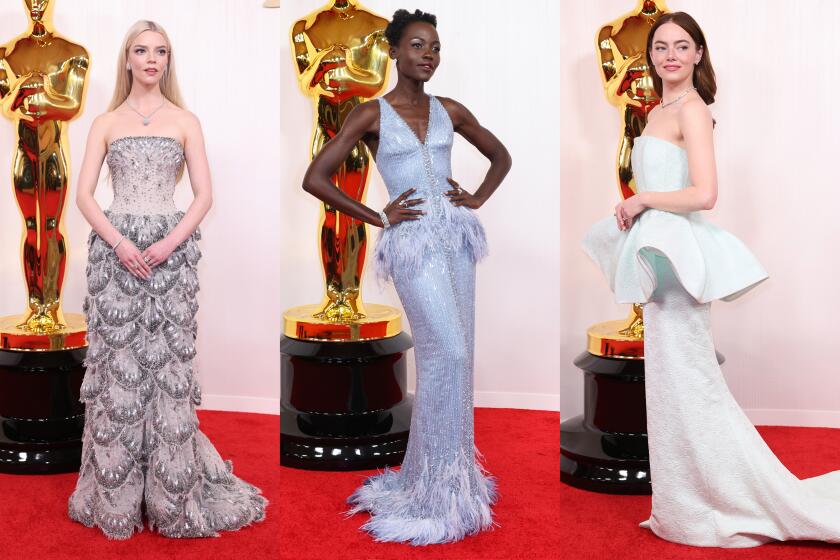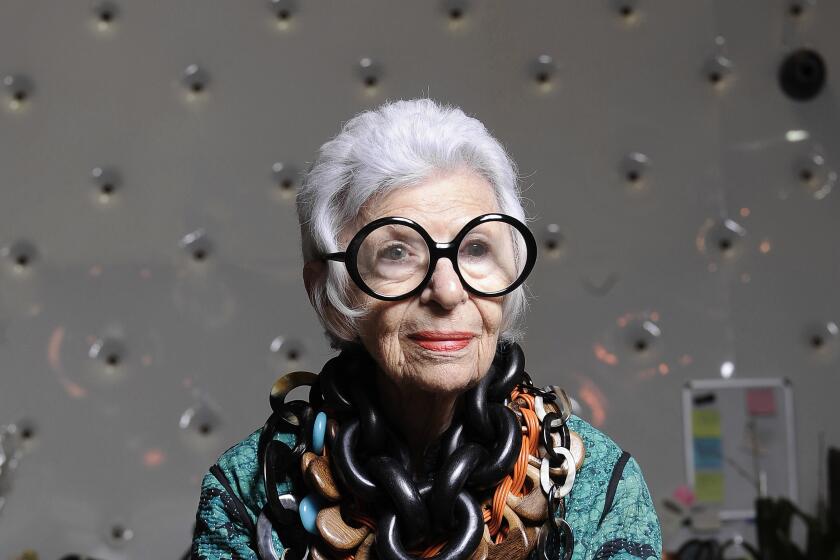Gucci’s Marco Bizzarri on learning amid blackface accusations
Gucci President and Chief Executive Officer Marco Bizzarri isn’t one to shy away from problem-solving. Nor from admitting a mistake.
Last week, the Italian luxury brand faced accusations that a balaclava-style sweater available on its online shop and physical stores evoked blackface and Gucci issued a statement on Thursday through its Twitter account reading, “We consider diversity to be a fundamental value to be fully upheld, respected and at the forefront of every decision we make.” The brand pulled the sweater from physical and online stores.
But the controversy has continued to rumble on. This week, Gucci’s collaborator Dapper Dan did not mince words in a Twitter and Instagram post saying: “I am a black man before I am a brand. Another fashion house has gotten it outrageously wrong. There is no excuse nor apology that can erase this kind of insult. The ceo of Gucci has agreed to come from Italy to Harlem this week to meet with me, along with members of the community and other industry leaders. There cannot be inclusivity without accountability. I will hold everyone accountable.”
On Tuesday, creative director Alessandro Michele also broke his silence in a letter addressed to Gucci’s “colleagues,” expressing “the pain of these days: my own and that of the people who saw in one of my creative projects an intolerable insult. It’s important for me to let you know that the jumper actually had very specific references, completely different from what was ascribed instead. It was a tribute to Leigh Bowery, to his camouflage art, to his ability to challenge the bourgeois conventions and conformism, to his eccentricity as a performer, to his extraordinary vocation to masquerade meant as a hymn to freedom.
“The fact that, contrarily to my intentions, that turtleneck jumper evoked a racist imagery causes me the greatest grief,” Michele added. “But I am aware that sometimes our actions can end up with causing unintentional effects. It is therefore necessary taking full accountability for these effects.”
Michele said that through his work he wanted “to give citizenship’s right to the traditionally marginalized, to those who felt unrepresented, to those that history silenced or made believe they were worthless. My aim, in which personal and political are intimately interwoven, has always been to turn the pain into a chant.”
In the letter, which he sent to all of Gucci’s 18,000 employees from his personal e-mail address, Michele concluded: “I really shelter the suffer of all I have offended. And I am heartfully sorry for this hurt. I hope I can rely on the understanding of those who know me and can acknowledge the constant tension toward the celebration of diversity that has always shaped my work. This is the only celebration I’m willing to stand for.”
Here, Bizzarri talks exclusively with WWD about the controversy, his personal involvement palpable, as he urges an open dialogue to generate cultural change and accelerate an improvement. He offered no excuses and it was clear how serious all this is for him and for Gucci. Aware “there is more work to do,” learning and spreading the knowledge are key for the executive so “that this will not happen again.”
You and Alessandro have worked on projects of inclusivity and diversity so this seems totally out of sync with your beliefs. The question many may be asking is, “How could this have happened?” How would you respond to this? What is the process in giving the green light to a look? Did something go amiss in that pipeline?
This is due to the ignorance of this matter. Certainly, it was not intentional but this is not an excuse. We make mistakes, and certain are worse than others because they offend people. The lack of knowledge of diversity and the consequent understanding are not at the level we expected, despite all the efforts we did inside the company in the last four years.
We are evaluating all the processes now to make sure the right level of awareness and visibility inform the process. In this case, it was a lack of knowledge.
What are the steps you want to take to better understand what happened and how would you amend the situation?
The first thing is to better understand, internally, the specific issue. I had the chance to be in the U.S. in these days for a trip that was planned in advance for a conference this week [at The New School’s Parsons School of Design], so I could talk directly to people in the shops, people from all the communities, and to grasp the depths of the problem that in my eyes, coming both from a different culture and a different country, was not particularly clear, even when it was raised.
In talking to my team in America, visiting different cities over the last week and reading about the issue, I realized how deep it is for the community in general, but also for our employees. Because our company, being a global company, is a mirror of society. The need for greater awareness and understanding is everywhere. The risk we could face is that anyone would not take this matter as serious as it is. We need to educate ourselves to make sure this does not happen again.
First, we want to fix the topic in our community — it is the thing we can control the best. Gucci is a family and our behaviors need to reflect that. We are promptly sharing these views and understanding with all our teams, to make sure anyone of our community in the shops and at corporate understand the importance of this topic. And that they have the ability to recognize, and the voice to share concern if something similar happens again. We want to foster the respect and trust to allow our people to participate and to be part of the conversation — and the solution.
For the external approach, we will move quick. Ideally by the end of this week, we will announce a full program of scholarships in major cities, such as New York, Nairobi, Tokyo, Beijing, Seoul, which will facilitate an increase of different communities within the creative office. I will also be discussing these important initiatives with leaders from different communities in order to develop a constructive and appropriate framework. I don’t want to be divided, I want to invite everyone to join us.
Dapper Dan spoke of a possible meeting with you in New York. Is this happening? When? What do you have in mind?
Yes, he is one of those leaders. But there are many other people who know who we are and what we stand for who have offered to join us to create more positive change. With Dapper Dan, we had a transparent conversation. Let’s see how things evolve. We are very keen in listening to how we can improve and to have an honest conversation with those who recognize the willingness to improve and make things better. And to discuss and go through issues together is the answer. I don’t want to live my life in a divided world, but in one where there is understanding and respect of differences.
Miuccia Prada spoke last month of the difficulties in knowing and understanding so many different cultures around the world. How do you think this could be overcome? Observers point out that fashion houses should be more diverse in terms of team members. Do you agree? Are you seeking to add greater diversity to your team to avoid these types of situations?
The need for understanding is everywhere — we need to work to improve this. From the very start in 2015, all that we have stood for and all that we have achieved on a daily basis has been driven by these values and has been defining this chapter for our brand. Above all, respect for others, celebrating diversity through inclusivity and with creativity at the heart of everything we do. We have created a shared corporate culture that makes us unique.
Considering we are a company based in Italy, we have to work even harder to make sure there are clear pathways for a global representation in our worldwide teams — and also in the regions. Alessandro has always shown that our differences are what inspires our creativity, and what characterizes us. Changing behavior, changing culture takes time. Even if we thought we were in a good position, we realize we have more work to do and we have to move faster.
Given how sensitive people are and the need for everyone to be so politically correct, are these types of situations almost unavoidable?
We live in a world where social media creates an immediate and transparent dialogue with everyone. We embrace this because it allows us to express more naturally who we are. But there are issues that come with being so present and real in the world, and in order to mitigate these risks, the only way is to create more knowledge and understanding. And to engage with all the communities in a sincere and transparent way.




